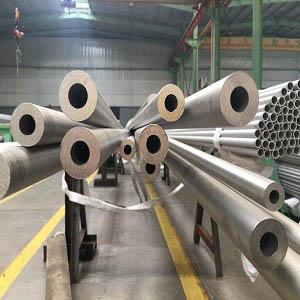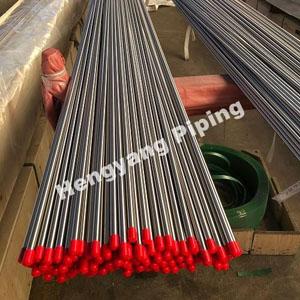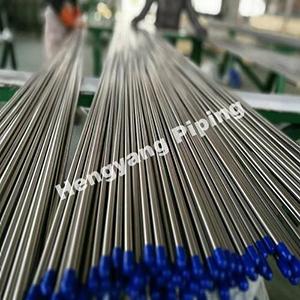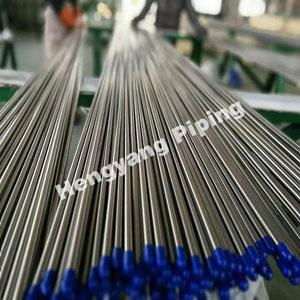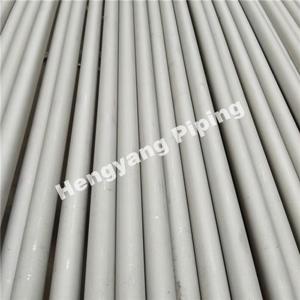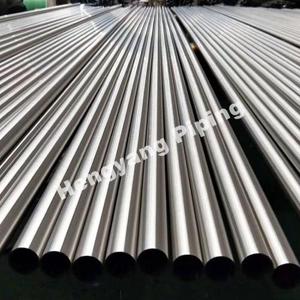Composition and Properties of Inconel 625 Tubing
Inconel alloy 625 is a nickel-based super alloy known for its strength and durability. It is used in many applications, including aerospace and marine engineering, chemical processing and industrial manufacturing. This article provides an overview of the composition and properties of UNS N06625.

UNS N06625 / Inconel 625 / W.Nr. 2.4856
625 Inconel tubing Composition
Inconel 625 is composed primarily of nickel (58%), chromium (20-23%), molybdenum (8-10%), manganese (5%), and iron (3-5%). It also contains trace amounts of titanium, aluminum, cobalt, sulfur, and phosphorus. This combination of elements makes it resistant to oxidation and corrosion at high temperatures.
625 Inconel Alloy Properties
Chemical Properties
UNS N06625 is highly resistant to oxidizing acids (e.g. hydrochloric acid) and reducing acids (e.g. sulfuric acid). Due to its high chromium content, it has excellent resistance to pitting corrosion in chloride-containing environments. Its corrosion resistance can be further enhanced by various treatments such as heat treatment or annealing.
Mechanical Properties
Inconel 625 alloy is a highly sought-after alloy for its impressive mechanical properties. It has excellent fatigue strength, tensile strength, and high creep fracture at temperatures up to 1500F. In addition, its resistance to stress corrosion cracking and oxidation resistance make it suitable for many extreme applications. UNS N06625 also has excellent weldability and formability compared to many other similar materials - making it ideal for parts that require deep forming or complex joining. All in all, Inconel 625 is a very strong and versatile solution in the highly competitive world of metal alloys.
Physical Properties
With a density of 8.4 g/cm3, Inconel 625 alloy is slightly heavier than other metals such as copper or aluminum, but lighter than stainless steel or titanium alloys. The alloy also has a high melting point of 1350°C and excellent thermal conductivity, making it suitable for use in extreme temperature conditions.
Heat Treatment
Heat treatment can further enhance the performance of Inconel625 by increasing its hardness while maintaining its corrosion resistance at temperatures up to 1400°C (2550°F). The most common heat treatment process is solution annealing, which involves heating the material to 950°C (1740°F) - 1050°C (1922°F), followed by rapid cooling in air or water quenching, depending on the desired result.
Heat Resistance
Inconel 625 is a titanium alloyed nickel-chromium material with excellent heat resistance. It offers exceptional protection against crevice corrosion and erosion in many acidic environments, making it particularly suitable for industries where elevated temperatures would normally cause damage to standard materials. Inconel 625 tubing has been used in offshore engineering, nuclear power production and other applications where prolonged exposure to high temperatures can be a problem. So if you need a material that won't fail at high temperatures, Inconel 625 is the ideal solution.
Machining
Machining Inconelt625 requires special attention as it tends to work hard during cutting and can cause dulling of tools if not handled properly. To reduce this effect, higher cutting speeds should be used when machining this alloy and plenty of lubricant should be used to ensure a smooth cutting action throughout the process. In addition, because this alloy does not respond well to impact loads during machining operations, cutting should only be done at slow feed rates on heavy machines designed to handle difficult materials such as nickel alloys.
Welding
When welding this alloy it should be noted that pure nickel alloy welds are susceptible to thermal cracking if the correct welding parameters are not observed during the joining process and therefore, depending on the application requirements, preheating may be required prior to welding.
Conclusion:
As you can see from this article, there are many benefits to using Inconel 625 in your next project due to its unique combination of properties, including excellent corrosion resistance at high temperatures and superior mechanical properties, making it ideal for applications that require components that must withstand harsh conditions for extended periods of time. With proper heat treatment processes and fine machining techniques, any project requiring this versatile super alloy will have no problem meeting the most demanding performance standards demanded by the industry today!

